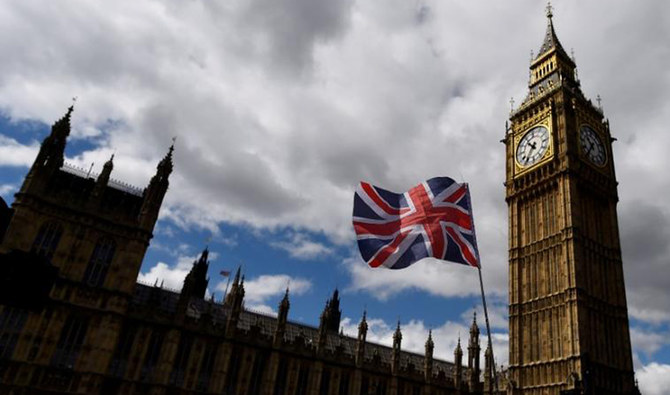ISLAMABAD: Pakistan’s High Commissioner to the United Kingdom, Moazzam Ahmad Khan, said he had spoken to the British prime minister who had assured him his government was “looking into” a recent decision to keep Pakistan on a red list of countries for travel, Pakistani media reported on Wednesday.
Travelers on the UK’s red list are required to undergo a costly 10-day hotel quarantine on arrival and also need to take a COVID-19 test before they enter the United Kingdom.
The changes — which came into effect on August 8 — put India, Bahrain, Qatar, UAE, and France on England’s so-called “amber” list that mandates virus tests before and after arrival for those jabbed in those territories.
“We feel the system they [British authorities] have adopted to assess Pakistan does not present an accurate picture of our COVID-19 situation, and this needs to be corrected,” Khan was quoted by Pakistan’s Dawn newspaper as telling reporters at a briefing. “I had an opportunity to speak to Prime Minister [Boris] Johnson and brought it to his attention that keeping Pakistan on the red list has left both people in Pakistan and the diaspora frustrated and disappointed. He said ‘we are looking into it’.”
According to Khan, the two key reservations of the UK government were insufficient genomic surveillance of new variants in Pakistan, and low testing.
“We feel the sample size of our daily tests is adequate to make informed decisions,” the ambassador said, adding that Pakistan also had a low number of daily deaths from the coronavirus.
“Those [daily deaths] cannot be hidden, and the demand for oxygen and ventilators too cannot be concealed,” he added. “So, their decision should not be based on one thing, but after considering all factors. We feel when assessing Pakistan’s situation, all elements were not considered.”
Khan said the UK government could achieve its main aim — to prevent entry of infected passengers, especially the entry of new variants, into the UK — through PCR and antigen tests.
“They are concerned about new variants [coming into the UK] and say our genomic surveillance is not adequate,” Khan said. “Of course, there may be room for more work, but our data gives us a clear picture. And our assessment shows that the variant of concern in Pakistan is not Beta, but mainly the UK and then Delta variant.”
















